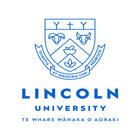University
Lincoln University
Master of Science in Food Innovation
This course is available
On-Campus
Level of Study
Master's Degree
Duration
12 months
Next start date
Expected Nov 2024
Campus
Lincoln University
Summary
Healthy food and nutrition is an essential for a healthy future. Lincoln University’s Master of Science and Food Innovation will expand your future with the knowledge and skills to create new foods, and to be at the forefront of creating original and innovative nutritional solutions.
Study durationThis is a 180-credit programme that will be completed in 12 months (three consecutive semesters, including a full summer semester from November to February).
About this programmeThis master’s degree that seeds the technical skills, nutritional and biochemical knowledge to innovate in the global food industry.
You can complete the programme in 12 months if you start in February or July which includes a summer semester which runs from November to February.
You’ll gain an awareness of the market challenges and issues in developing new food products, and learn about food quality, composition and processing safety, human nutrition and sensory evaluation.
You’ll graduate with the abilities to succeed in both national and international companies, and even be able to design and create your own unique products.
- By developing an understanding of how food composition and processing affects food quality.
- The factors that drive consumer appreciation of foods, food biochemistry, food microbiology and food toxins.
- Strong skills in applied research and problem-based learning.
As a graduate of the Master of Science in Food Innovation, you’ll be ready for roles in food science, product development science, food safety, laboratory analysis, quality control, food production, biochemistry and consultancy.
Entry criteria
A relevant New Zealand level 7 bachelor’s degree or recognised equivalent with a B average or better in the 300 level and final year (full-time equivalent) courses
English Language Requirements
- IELTS academic score of 6.5 overall, with no individual component less than 6.0
- TOEFL (iBT) overall score of 80 (with at least 21 in writing and 18 in Speaking)
- Cambridge English: Advanced (CAE) and First (FCE) overall score of 176, with no individual component less than 169
- Pearson Test of English (Academic) overall score of 58 with no communicative score of less than 50
- Lincoln University English Language GCAE or LU EL 70%.
- NZ Certificates in English Language (NZCEL) - Level 5 (Academic or Professional Endorsement)
Studying in NZ
Disclaimer